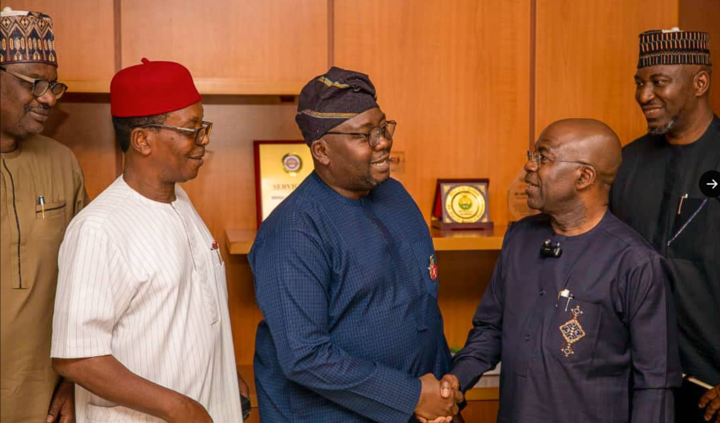In a decisive move aimed at addressing the persistent power shortages that have long plagued Nigeria, the federal government is contemplating a significant shift in the ownership structure of 11 power distribution companies (DISCOs), considering the possibility of transferring ownership to state governments. This revelation comes via a tweet from the Minister of Power, Adebayo Adelabu, published on Friday.
Presently, the federal government maintains a 40% stake in these DISCOs, which were privatized approximately a decade ago. Operating across multiple states, each of these companies plays a pivotal role in the nation’s power distribution infrastructure.
In a strategic move intended to enhance oversight and efficiency in power distribution at the state level, Minister Adelabu unveiled that the federal government is contemplating an equity swap. This proposal involves exchanging its shares in the DISCOs for shares in the Niger Delta Power Holding Co., another power entity jointly owned by the federal, state, and local governments but managed privately.

To further involve the states in the power distribution landscape, the government is exploring the idea of unbundling regional DISCOs into individual states, facilitating more localized oversight. Financial collaboration between the federal and state governments is also under consideration, potentially involving a swap of stakes in DISCOs with state stakes in the Niger Delta Power Holding Company.
In essence, Minister Adelabu’s comments suggest that, in exchange for transferring the federal government’s 40% stake to states, the states would reciprocate by swapping their share of NDPHC with the federal government.
The Niger Delta Power Holding Company Limited (NDPHC) functions as a limited liability company serving as the legal vehicle to hold the National Integrated Power Project (NIPP) assets, adhering to private sector-oriented best business practices.
Emphasizing the government’s commitment to the power sector, Minister Adelabu stated in the tweet, “We are committed to collaborating closely with the state ministries of power to tackle challenges in the distribution segment, considering its retail nature.”
Nigeria, the most populous nation in Africa with over 200 million people, grapples with a substantial gap between its installed power generation capacity of 12,500 megawatts and the actual power distributed, estimated at around 4,000 megawatts. This disparity has compelled millions of households and businesses to rely on generators for electricity.
In a bid to rejuvenate the power sector, President Bola Tinubu enacted the Electricity Act, which grants states more authority to regulate the sector. This legislation also permits state governments to generate and distribute power, marking a significant departure from the previous law that exclusively vested such rights in the federal government.
The proposed shift in power utility ownership is viewed as a pivotal step toward decentralizing Nigeria’s power sector, potentially paving the way for more localized and efficient management of power resources and distribution networks. However, it is likely to raise concerns among investors in the sector who may question the states’ capacity to effectively regulate the power industry.
For more information, you can visit Infostride News.
Support InfoStride News' Credible Journalism: Only credible journalism can guarantee a fair, accountable and transparent society, including democracy and government. It involves a lot of efforts and money. We need your support. Click here to Donate
